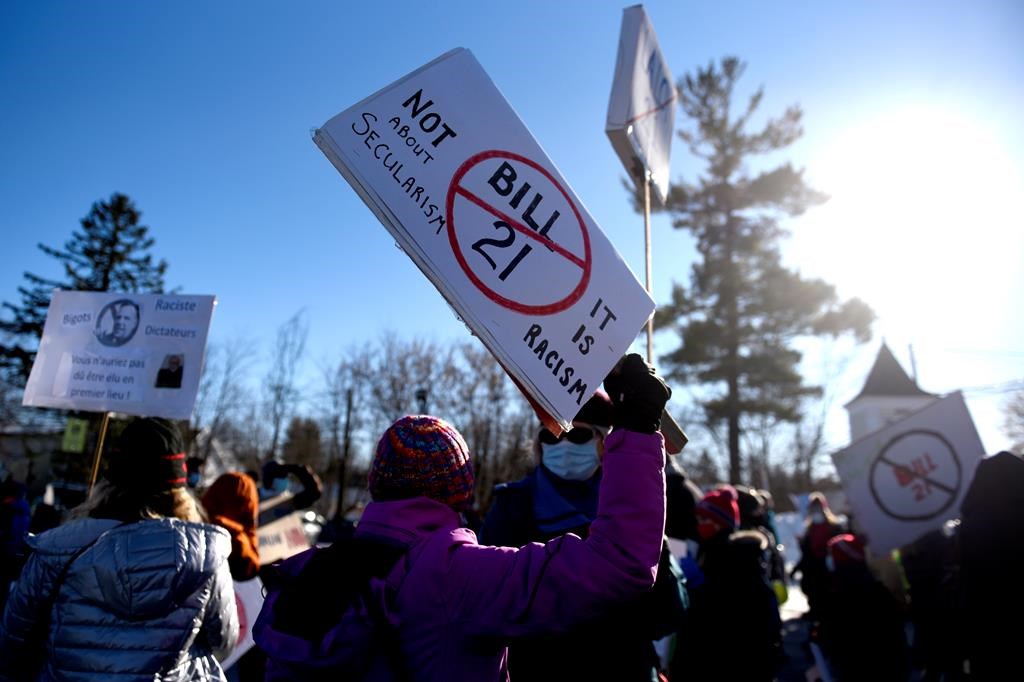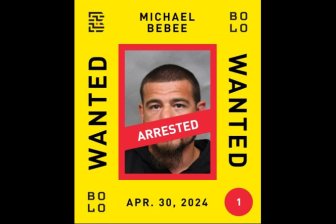The Quebec government tabled legislation Thursday to continue shielding the province’s secularism law — known as Bill 21 — from court challenges over Charter violations.

The application of the Constitution’s notwithstanding clause for another five years is needed to maintain “social peace” in the province, Jean-François Roberge, the minister responsible for secularism, told reporters.
Bill 21 was passed in June 2019 and prohibits public servants deemed to be in positions of authority — including teachers, police officers and judges — from wearing religious symbols such as the hijab, turban or kippah on the job. The law sparked outrage among religious minorities across Canada. A challenge to the legislation is currently before the province’s highest court, but because of the notwithstanding clause lawyers have been limited in the arguments they can present.
Roberge called Bill 21 an extremely important achievement. “It currently preserves, I would say, social peace, it promotes coexistence. That’s why we absolutely must renew the notwithstanding clause,” he said.
The Charter of Rights and Freedoms stipulates that the notwithstanding clause — which protects legislation from challenges over Charter violations — can be applied to legislation for five years, after which time a government has to renew it.
According to Roberge, Bill 21 has brought “extremely important clarifications for the government, educational institutions, municipalities, courts, police, on what can and cannot be done, the way to handle requests for reasonable accommodations.”
Both the Quebec government and groups opposing Bill 21 are challenging an April 2021 Superior Court decision that largely upheld the controversial legislation but struck down provisions relating to English-language school boards and a ban on face coverings for members of the provincial legislature. Seventeen separate parties are challenging the law. The Quebec Court of Appeal heard arguments for and against the law in November 2022 and hasn’t yet released a ruling.
The official Opposition Liberals oppose the extension of the notwithstanding clause, saying there is no justification for suspending fundamental freedoms. “The notwithstanding clause … is so broad that it suspends fundamental rights and freedoms that have no connection to Bill 21,” said Liberal interim Leader Marc Tanguay.
But the Coalition Avenir Québec has a majority government, and the other two opposition parties, the Parti Québécois and Québec solidaire, also support the extension of the clause.
PQ member Pascal Bérubé told reporters Thursday that not only does his party like Bill 21, it thinks it should be expanded to cover daycare workers.
Meanwhile, Québec solidaire spokesman Gabriel Nadeau-Dubois says that while his party doesn’t support Bill 21, it also doesn’t think the legislation should be struck down over a possible violation of the Canadian Constitution. The law, he said, should be changed by Quebec’s legislature.
“It’s a bad law for Quebec, but these are debates that must take place in Quebec, which must be settled by Quebec’s institutions and charters,” Nadeau-Dubois said.






Comments